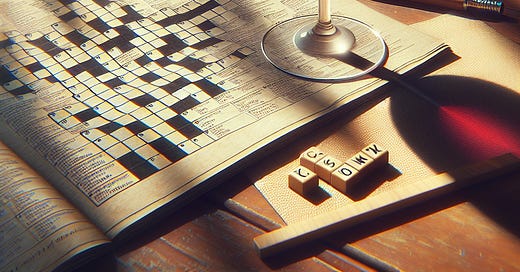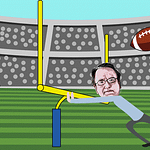I entered med school in 1994, three years after 60 Minutes’ infamous “French Paradox” segment. In it, Morley Safer traveled to France to investigate why French people live longer and better, despite eating far more cholesterol-rich and fatty foods than Americans. Conclusion? Red wine. Which the French have at lunch, dinner, and as a gargle after brushing their teeth.
Like most of America, which saw an instant jump in red wine sales after the segment, my instructors were believers. Perhaps it was the show’s close-up of differently colored poop from lab rats (sacre bleu!), or the microscope slides of clogged arteries (mon dieu!), or the mouth-watering cheese shop visit (oh là là). Whatever the hook, my teachers made me a believer. As a result, since my grandfather had died in his 50s from a third heart attack, I began drinking a glass a day of red wine.
But this meant figuring out what type of wine I like, and it quickly became clear that bottle labels weren’t helpful. Also, wine books and wine language made me want to kick the shit out of someone. So I started blind tasting. I explained to salespeople and wait staff that I was trying to learn about wine. I would tell them a price cutoff and ask them to choose, then cover or hide the label. And I would try to guess the wine.
Sommeliers and wine people loved the challenge. They would giddily pick their most instructive lesson, or their best deal, and after I tasted we would discuss it. I learned a lot, and was wrong a lot. Eventually, friends joined ‘The Game’ and we played regularly. Thirty years later, the game continues. I haven’t chosen a wine for decades. My favorite nights involve a wine bar, a mystery wine, and a crossword puzzle.
One such recent evening I was approached by someone who asked if I do it to “stay sharp.”
“The wine, or the crossword?” I asked.
She looked over my shoulder, “Four down is ebb.”
Seemed like a good guess that my rude interloper was referring to crosswords, not wine. More importantly, this nervy nebbish had committed a serious faux pas by calling out an answer on my crossword. The coup de grâce: she was wrong—it was ‘eel’.
J’accuse!!!
The evidence red wine can stave off dementia is, notably, observational (read: weak, unreliable, merde). But for crosswording there is, incredibly, an excellent randomized trial.
Starting in 2017, at centers in New York and North Carolina researchers randomly assigned 107 people with mild cognitive impairment to perform either weekly cognitive training games on a computer or weekly crosswords. MCI is a kind of pre-dementia in which there are changes in memory and other cognitive processes, but people are still functionally independent and safe. (When people stop being able to independently complete or handle the tasks of daily living, it’s dementia).
The training games for the study subjects were designed to improve memory, visual matching, and processing speed, and became increasingly challenging. The crosswords were equivalent to a Thursday NY Times crossword (they get tougher through the week), and didn’t change. Then, after a year and a half, the researchers measured any changes in cognitive function.
Their expectations for the trial were based on a seminal 2002 study of healthy elderly adults, in which cognitive exercises, not crosswords, improved performance and daily function durably (immediately, and 10 years later). Therefore the researchers guessed that the group assigned to do games would fare best. Since cognitive decline is generally thought to be irreversible, but can be slowed, they hoped this might mean slower declines for the training games group than the crossword group.
But that’s not what they found. Au contraire! Weekly crosswording didn’t just slow decline better than games, incredibly, it actually improved cognitive function.
Excusez moi?! Improving cognitive function in such trials is virtually unheard of. Which is why the crossword study is a potential game-changer (literally). Perhaps, it seems, cognitive decline isn’t hopelessly progressive.
After the recent, and brazenly misrepresented, failures of the new Alzheimer’s drugs it’s worth revisiting the crossword data to find some Zen. There is hope, after all.
There are also, however, caveats. For one, the trial enrolled people with MCI. Whether crosswords will help me ‘stay sharp’ is still conjecture. Plus, the study is small and participants were a well-educated, mostly white crowd, averaging four years of college. The study will need to be replicated, preferably in a much more diverse group.
In the meantime, however, the best available data strongly suggests crosswords are good for cognitive function. I can also attest they’re kind of addictive.
And despite the fact that red wine is no longer de rigueur, or à la mode (or even really supported by any good evidence) it’s still fun to blind taste, yet another way of exercising the brain.
Or maybe pickling it. If so, c’est la vie.













Share this post